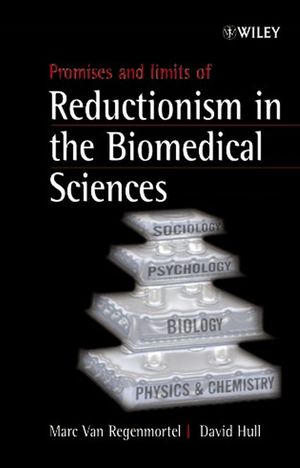Promises and Limits of Reductionism in the Biomedical SciencesISBN: 978-0-471-49850-6
Hardcover
382 pages
August 2002
 This is a Print-on-Demand title. It will be printed specifically to fill your order. Please allow an additional 15-20 days delivery time. The book is not returnable.
|
||||||
Reductionism as a scientific methodology has been extraordinarily
successful in biology. However, recent developments in molecular
biology have shown that reductionism is seriously inadequate in
dealing with the mind-boggling complexity of integrated biological
systems.
This title presents an appropriate balance between science and philosophy and covers traditional philosophical treatments of reductionism as well as the benefits and shortcomings of reductionism in particular areas of science.
Discussing the issue of reductionism in the practice of medicine it takes into account the holistic and integrative aspects that require the context of the patient in his biological and psychological entirety.
The emerging picture is that what first seems like hopeless disagreements turn out to be differences in emphasis. Although genes play an important role in biology, the focus on genetics and genomics has often been misleading. The consensus view leads to pluralism: both reductionst methods and a more integrative approach to biological complexity are required, depending on the questions that are asked.
* An even balance of contributions from scientists and philosophers of science - representing a unique interchange between both communities interested in reductionism
This title presents an appropriate balance between science and philosophy and covers traditional philosophical treatments of reductionism as well as the benefits and shortcomings of reductionism in particular areas of science.
Discussing the issue of reductionism in the practice of medicine it takes into account the holistic and integrative aspects that require the context of the patient in his biological and psychological entirety.
The emerging picture is that what first seems like hopeless disagreements turn out to be differences in emphasis. Although genes play an important role in biology, the focus on genetics and genomics has often been misleading. The consensus view leads to pluralism: both reductionst methods and a more integrative approach to biological complexity are required, depending on the questions that are asked.
* An even balance of contributions from scientists and philosophers of science - representing a unique interchange between both communities interested in reductionism



